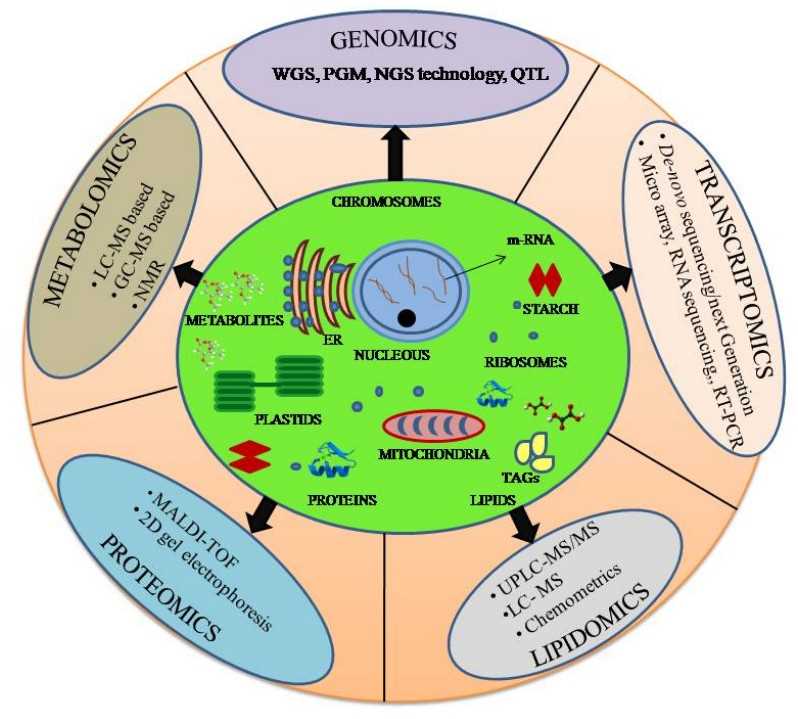Microalgae are a large and diverse group of unicellular phototrophic and heterotrophic organisms that form the basis of the food chain. In addition to its ecological importance, microalgae are also considered commercially valuable, emerging as a potential candidate organisms for application-driven research. Therefore, it is necessary to have a comprehensive and in-depth understanding of its essential biological functions. The advent of the omics era and the development of related technologies for acquiring and analyzing large numbers of available large data sets have revolutionized microalgal biology research. The combination of multi-omics and data analysis has facilitated the understanding of biological processes and allowed a complete understanding of the different metabolic pathways used for genetic manipulation, making microalgal factories more efficient. Microalgae processes can now be studied by applying a range of omics approaches via genomics, transcriptomics, proteomics, metabolomics, and metagenomics.
 Fig 1. Schematic of omics approaches for microalgae. (Mishra A, et al., 2019)
Fig 1. Schematic of omics approaches for microalgae. (Mishra A, et al., 2019)
Integrative omics techniques are powerful for understanding complete microalgal systems and developing microalgal cell factories. Lifeasible has extensive experience in microalgae omics research. We are proud to provide customized and comprehensive microalgae omics services to our clients, including but not limited to:
Algal genome sequences reveal that individual organisms have unique primary sequence structure and genetic composition characteristics. Our microalgal genomicsanalyzes algal genomes to help you obtain nucleotide sequences and provides essential information for studies of microalgae physiology, environmental adaptation mechanisms, morphogenesis, and evolution.
Genomics and transcriptomics alone are insufficient to understand the complex biology of microalgae and should be complemented by proteomic approaches. Our scientists use advanced modern mass spectrometry to provide information on microalgal proteins to explore microalgal biosynthesis, including post-translational modifications, subcellular localization, and protein-protein interactions.
We provide comprehensive microalgal transcriptomics services to analyze the function of all expressed genes in microalgae, including identification of individual transcription units, determination of the expression level of each expressed gene, precise assessment of transcript diversity at each transcription site, and examination of protein factors that contribute to the control of cellular transcriptional cassettes.
Microalgae can produce a large number of unique active secondary metabolites with specific metabolic patterns closely related to their environment's unique characteristics and are of great importance for drug discovery. We offer nuclear magnetic resonance (NMR) and mass spectrometry (MS) based techniques for high throughput analysis of microalgal metabolites, including fatty acids, steroids, carotenoids, polysaccharides, lectins, polyketides, and algal toxins.
Our microalgae omics services are essential to assist in developing sustainable strategies for yield and quality improvement of biodiesel and its by-products, as well as the lucrative microalgae industry. Our customer service representatives are enthusiastic and trustworthy 24 hours a day, 7 days a week. If you are interested in our services, please feel free to contact us for more information or to discuss in detail.
Reference